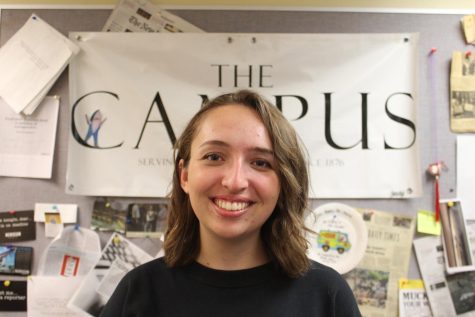Scholarships are socialist
What fellowships can teach us about policy
I spent my fall break in an ultimately futile attempt to shake off Athens jetlag. I’m not complaining; the seven-hour time jump that had burrowed into my brain was a constant — if somewhat annoying — reminder that I recently spent a life-changing week in Greece.
Two weeks ago I, along with about 20 other students, attended the Athens Democracy Forum through the Global Liberal Arts Alliance. Throughout the entire week, our plane tickets, hotel rooms, meals and passes to the ADF were covered. At bare minimum, the only things we had to pay for were cab fare and dinner on the last night. In addition, we were given workspaces on the campus of the American College of Greece and participated in special programming for GLAA student delegates — lectures, workshops and the like.
It was a sweet deal, though not one-sided. All GLAA students in attendance went through an application process in the spring and, once selected, participated in fairly regular summer preparatory work. Now that the Forum is over, we are expected to generate reports about ADF panels. All in all, I found this work a small price to pay for the chance to spend a mostly-free week in Athens meeting new people and learning new things.
It was nevertheless difficult to shake the feeling that I was immensely privileged to be there — even though I applied, even though I worked hard and earned it. I was offered this opportunity by virtue of my being a student at a specific private liberal arts college. I am fortunate to have the support from both my family and my institution to afford such an education. I am sure that for every bright GLAA delegate at the ADF there were one hundred people, just as bright, who can’t afford tuition. How are they supposed to live up to their full potential without the access that privilege provides?
That week, I did not have to worry about my hours at work or bills or mounds of homework or what was for dinner. I was free to spend hours of the day constructing actionable solutions to fix democracy with other students from across the globe.
I was amazed at the work that we got done in such a short span of time. The GLAA students were all intelligent and eager to collaborate; there was more than one time where I discovered a group of students huddled together at breakfast or dinner in a thoughtful political debate. We all worried about the schoolwork we were missing, of course — I still haven’t completely caught up — but generally found in that week the freedom to push our philosophical and intellectual boundaries and the opportunity to behave as fully-contributing citizens of the world.
Sure, you can argue that this is because we were a group of high-achievers to begin with — a cohort of self-proclaimed nerds who got golden tickets to the nerd factory. But I think this points at a simpler, more universal truth: when people are freed from certain burdens and have their basic needs met, they are given the space to thrive.
Now transfer the principle to people less privileged than I am. The minimum wage is raised and undervalued workers are no longer barred from a livable income and the right to free time. A college student is relieved of the burden of crushing student debt and now feels that they have a right to study what they love, not what will make them money. A person suffering from a chronic illness does not need to choose between their life and livelihood to receive proper medical care.
It’s not a new idea, and I’m sure this is already generating a fair number of folks who would accuse me of one any one of those terrible -isms: utopianism, socialism or, bless my heart, optimism. It feels nearly impossible to write about this stuff in the politically-charged climate of the 2022 midterms. Stick with me.
I think most people would agree that fellowship and scholarship opportunities such as the one I received are good, if not all for the same reason. At their core, these opportunities are a pact: you do your part in some way, through work, study or both, and we will make sure that your needs are met. Free from certain burdens of modern adult life — namely financial — you will have the opportunity to grow and explore as a person. It is a calculated investment in a person in the hopes that they may, through this opportunity, become somebody who positively impacts the global community.
Plenty of people who celebrated the fact that I received such an opportunity are also opposed to things like universal healthcare, forgiving student debt or raising the minimum wage — policies which effectively operate along the same system as fellowships and scholarships. I would bet that if we invest in a people’s health or eliminate their debt in the hopes that they may now be free to change the world we will see an awful lot of people doing incredible things. Or, at the very least, we will see a much happier global population. That sounds like an ideal worst-case scenario to me.

Sydney Emerson is a member of the class of 2023. She is from Bradford, Pennsylvania and is an English major with a history minor.





